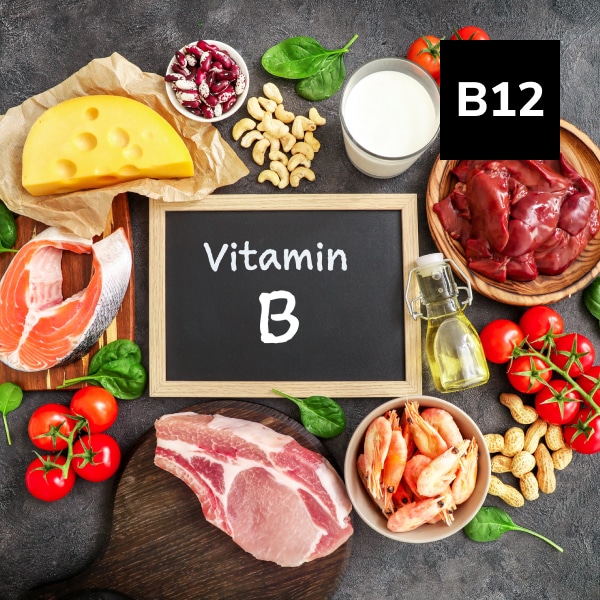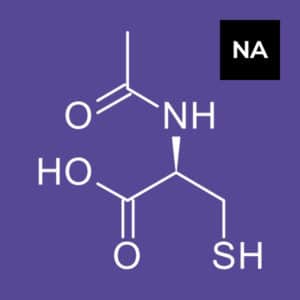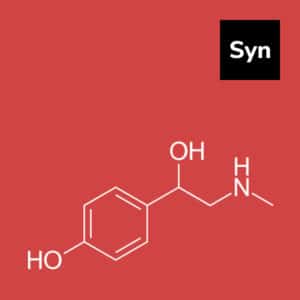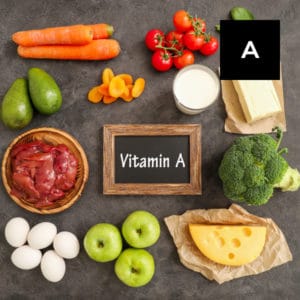Overview
Plants have little or no Vitamin B12 (Cobalamin), which is why strict vegetarians might develop pernicious anemia, a condition caused by a lack of this vitamin. Vitamin B12 is required for healthy cell function, notably in the neurological system, bone marrow, and gastrointestinal tract. It also participates in the breakdown of lipids, proteins, and carbs. Vitamin B12 is water-soluble and light, acid, and alkali sensitive.
Key Benefits
- Aids in the production and renewal of red blood cells, therefore preventing anemia
- Is required for carbohydrate, lipid, and protein metabolism
- Maintains a healthy neurological system
- Promotes development in children
- Increases energy
- Is required for calcium absorption
- Can postpone the onset of depression
History of Usage
The discovery of vitamin B12, its function in metabolism, and the consequences and therapy of its insufficiency occurred in stages over the course of more than a century. It has been the recipient of two Nobel Prizes.
Throughout the nineteenth century, the valuable contribution of clinical reports and studies of patients with pernicious anemia resulted in sufficient clinical definition for George R. Minot and William P. Murphy to put together the first landmark study on the condition’s treatment, earning them the Nobel Prize. Castle made the next breakthrough after the successful intervention trials when he discovered that a stomach component, which he named intrinsic factor, was lacking in pernicious anemia.
Many years later, it was discovered that the intrinsic factor was a glycoprotein that formed a compound with vitamin B12, increasing its absorption via ileal receptors. The vitamin was isolated concurrently by two groups then crystallized and described in Dorothy Hodgkin’s laboratory, leading to her Nobel Prize in 1964.
Following that, the numerous biochemical activities of vitamin B12 were elucidated, including its critical interaction with folate and its shared relationship with megaloblastic anemia. Many early clinical investigations discovered that vitamin B12 insufficiency produced severe neuropathy, which led to paralysis and death. Vitamin B12 is still being studied extensively, and its function in preventing these irreversible brain disorders is particularly uncertain.
Biochemistry
Because vitamin B12 includes the element cobalt, substances having vitamin B12 activity are generally referred to as “cobalamins.” The physiologically active forms of vitamin B12 are methylcobalamin and 5-deoxyadenosylcobalamin. However, when converted to methylcobalamin or 5-deoxyadenosylcobalamin, two more forms, hydroxycobalamin and cyanocobalamin, become physiologically active.
Vitamin B12 and folic acid collaborate on a variety of bodily functions, including the production of DNA, red blood cells, and the myelin sheath that surrounds and protects nerve cells and transmits electrical signals along with them.
Folic acid and vitamin B12 act synergistically to reduce homocysteine levels. A study of 45 senior individuals with vitamin B12 insufficiency found that daily treatment with 5 mg folic acid and 500 mcg vitamin B12 for 8 weeks significantly reduced total cholesterol, folate (folic acid and vitamin B12) levels in the blood serum, homocysteine levels, and blood glucose levels.
A deficiency of vitamin B12 is usually caused by a lack of intrinsic factor, a substance that allows the body to absorb vitamin B12 from the digestive system, or from a vegan or macrobiotic diet. A deficiency may result in pernicious anemia, poor appetite, diarrhea, growth failure in children, tiredness, nervousness, depression, neuritis, degeneration of spinal cord, depression, lack of balance, confusion, dementia, soreness of the mouth or tongue, nerve problems like tingling, and muscle weakness.
People may develop vitamin B12 deficiency if they have:
- Atrophic gastritis
- Pernicious anemia
- Crohn’s disease, celiac disease, bacterial growth, or a parasite are at risk
- Alcohol and substance abuse
- Immune disorders
Food sources for B12 include eggs, fish, meat, poultry, and dairy products.
People who have pernicious anemia or trouble absorbing vitamin B12 may need injections of vitamin B12, or need to take high doses of an oral supplement, or receive it nasally.
Vegans need to include vitamin B12-fortified grains, get B12 injections, or take a high-dose oral vitamin B12.
Older adults who have a vitamin B12 deficiency need to take a daily B12 supplement or a multivitamin that contains B12.
Recent Trends
Vitamin B12 is available in a variety of forms, including syrups, injections, pills, powder, and nasal spray.
Individuals who have trouble swallowing tablets may benefit from sublingual and spray administration techniques. The FDA has declared, however, that items designed to be absorbed directly via the skin or mucosal tissues, such as transdermal or sublingual treatments, are not considered dietary supplements. As a result, these items may be classed as medicines.
The Global Vitamin B12 (Cobalamin) Market is expected to expand at a 7.2% compound annual growth rate between 2019 and 2027, from $292.6 million in 2019. Global demand for B12 products is driven mostly by the growing demand for nutrients that support healthy neurons, cells, and DNA, as well as the growing emphasis on preventing megaloblastic anemia. Additionally, demand for nutraceuticals, vegan-friendly foods and drinks, and dietary supplements is growing quickly.
Powder forms are projected to gain a sizable part of the market in the coming years, owing to the growing demand for Vitamin B12 powders among bodybuilders and athletes. Additionally, makers of nutritional goods have created powder products that may be eaten in conjunction with beverages and milk products.
Precautions
- Vitamin B12 is usually regarded as safe in large doses, since the body does not retain excess amounts.
- Vitamin B12 may interact with some medicines, including stomach acid inhibitors and diabetic treatments. Additionally, a variety of medicines may have an unfavorable effect on vitamin B12 levels. Individuals taking prescription medications should consult their physician.
References
- Sangle P, Sandhu O, Aftab Z, Anthony AT, Khan S. Vitamin B12 Supplementation: Preventing Onset and Improving Prognosis of Depression. Cureus. 2020 Oct 26;12(10):e11169. doi: 10.7759/cureus.11169. PMID: 33251075; PMCID: PMC7688056.
- Srinivasan K, Thomas T, Kapanee AR, Ramthal A, Bellinger DC, Bosch RJ, Kurpad AV, Duggan C. Effects of maternal vitamin B12 supplementation on early infant neurocognitive outcomes: a randomized controlled clinical trial. Matern Child Nutr. 2017 Apr;13(2):e12325. doi: 10.1111/mcn.12325. Epub 2016 Jun 29. PMID: 27356547; PMCID: PMC6090548.
- Drugs and Lactation Database (LactMed) [Internet]. Bethesda (MD): National Library of Medicine (US); 2006–. Vitamin B12. 2021 Jun 21. PMID: 30489717.
- Naik S, Mahalle N, Greibe E, Ostenfeld MS, Heegaard CW, Nexo E, Fedosov SN. Cyano-B12 or Whey Powder with Endogenous Hydroxo-B12 for Supplementation in B12 Deficient Lactovegetarians. Nutrients. 2019 Oct 6;11(10):2382. doi: 10.3390/nu11102382. PMID: 31590426; PMCID: PMC6835307.
- Institute of Medicine, Food and Nutrition Board. Dietary Reference Intakes for Thiamin, Riboflavin, Niacin, Vitamin B(6), Folate, Vitamin B(12), Pantothenic Acid, Biotin, and Choline. Washington, DC: National Academies Press; 1998.
- Carmel R. Cobalamin (vitamin B12). In: Ross AC, Caballero B, Cousins RJ, Tucker KL, Ziegler TR, eds. Modern Nutrition in Health and Disease. 11th ed. Baltimore, MD: Lippincott Williams & Wilkins; 2014:369-89.
- Allen LH. Vitamin B12. In: Coates PM, Betz JM, Blackman MR, et al., eds. Encyclopedia of Dietary Supplements. 2nd ed. London and New York: Informa Healthcare; 2010:812-20.
- Scott JM, Molloy AM. The discovery of vitamin B(12). Ann Nutr Metab. 2012;61(3):239-45. doi: 10.1159/000343114. Epub 2012 Nov 26. PMID: 23183296.
- Selvakumar LS, Thakur MS. Dipstick based immunochemiluminescence biosensor for the analysis of vitamin B12 in energy drinks: a novel approach. Anal Chim Acta. 2012 Apr 13;722:107-13. doi: 10.1016/j.aca.2012.02.006. Epub 2012 Feb 13. PMID: 22444541.




